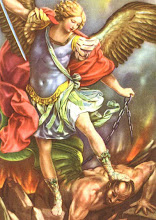Friday, January 22, 1999 Published at 13:34
GMT World: South AsiaIndia's hidden incest By South Asia Correspondent Daniel Lak
Close-knit family life in India masks an alarming amount of sexual abuse of children and teenage girls by family members, a new report suggests.
Daniel Lak speaks to women from the report who have suffered rape at the hands of male relativesDelhi organisation RAHI said 76% of respondents to its survey had been abused when they were children - 40% of those by a family member.
The report suggests that disbelief, denial and cover-up to preserve the family reputation is often put before the individual child.
Women who gave evidence to RAHI spoke of the nightmare of abuse that haunts them still.
"Every time my parents went out to a party the bastard used to do it," said one.
Another said: "When I told people in my family about the abuse there was hostility, contempt and anger targeted at me - I became an outcast."
RAHI founder Anjua Gupta said she set up the organisation because she believed sexual abuse was rampant in Indian families and no one was doing anything about it.
"When I started working in this area people used to say 'Where are the Indian statistics?'. It was thought of as a Western phenomenon.
"One of the reasons there hasn't been any data collection is because it is not considered to be an Indian problem."
The report, Voices from the Silent Zone, suggests that nearly three-quarters of upper and middle class Indian women are abused by a family member - more than often an uncle, a cousin or an elder brother.
Disbelief, denial and cover-up
Incest and child sexual abuse occurs everywhere.
Psychiatrist Achal Baghat says the particular problem in India is that the concept of family is almost sacred, and abuse, if it happens, is met with disbelief.
"I think there is a great myth about Indian family systems being supportive," he says.
"What do you do if you're the mother in a family where the child is being abused? You do not have that much power to do anything about the abuse.
"Generally there is this thing about harming the name of the family. This need to prevent the family being laughed at leads to a lot of cover-ups."
Women on a pedestal
Activists in the field say the position of women in India is another problem. Society puts them on a pedestal as mothers and wives, but doesn't allow for their protection from domestic abuse.
Voices from the Silent Zone pinpoints another problem facing victims of abuse in India - the complete absence of any structure outside the family to help with abuse.
Achal Baghat says he often faces the grimmest of choices when considering how to help the victim.
"What is there if not the family? Where are the other support systems? There aren't any. There might be a few NGOs working in India - but can they really cope?
"The juvenile homes, the social support system is so lacking and so insensitive to the children, that I wouldn't be sure what is worse - to stay with an abusive family, or the environment the system would put them in."
Changing the law
In India, there is no specific law covering sexual abuse of children by strangers, let alone by family members. The legal definition of rape calls for proof that the rapist actually penetrated a victim, even a young child.
Judges have even said that it is impossible for fathers to rape their daughters, despite evidence to the contrary.
In the end, all Indian counsellors and activists can do to help victims of abuse is convince them that nothing has been their fault; that they are a survivor of a damaging, but not necessarily fatal experience, and they can continue to live life - never forgetting what happened to them, but getting on with it.
Everyone who works with victims and survivors of abuse agrees that awareness begins in the schoolyard. But in a profoundly conservative society like India, raising such sensitive issues in school would be controversial.
The chances that more than half of India's schoolgirls have experienced or will experience sexual abuse remain very high.
Family facts of the abused
68% were living in nuclear families
16% in semi-joint families (nuclear and grandparents)
15% in joint families (extended)
Mothers of the abused
Despite common perception that the mothers of abused children were working, the report said that of those surveyed who said they were abused, 60% of mothers were housewives and 40% were employed.
http://news.bbc.co.uk/2/hi/south_asia/259959.stm
ARTICLES AGAINST PEDOPHILIA AND INCEST
Iscriviti a:
Commenti sul post (Atom)





Nessun commento:
Posta un commento